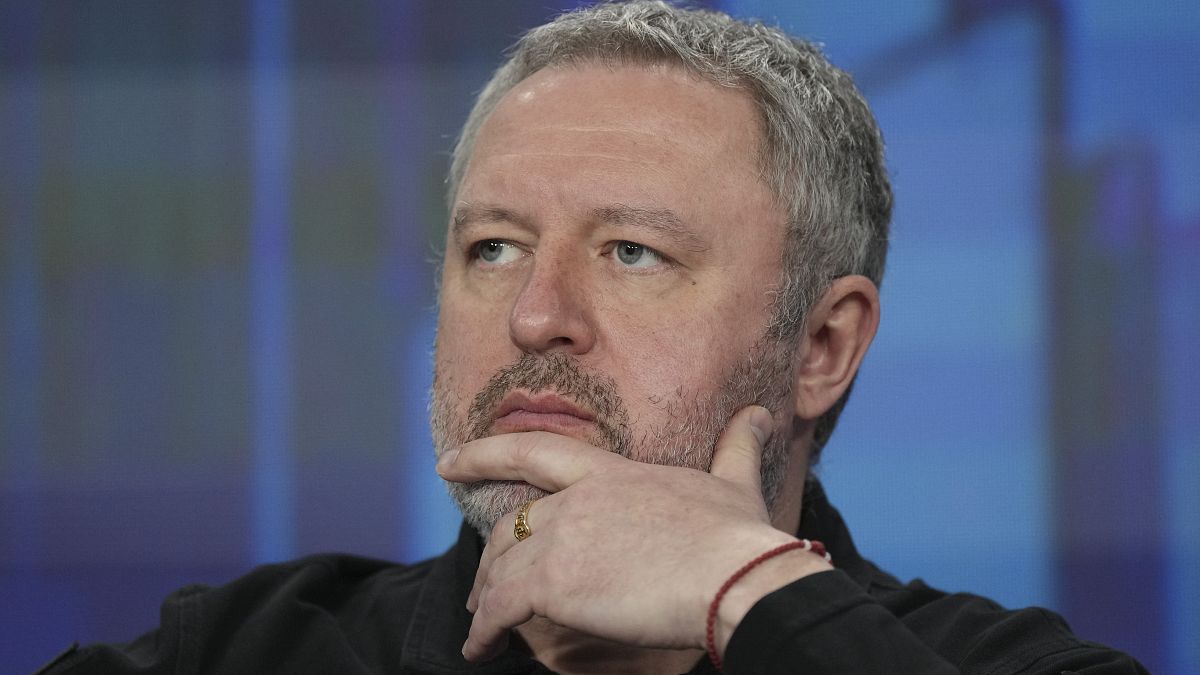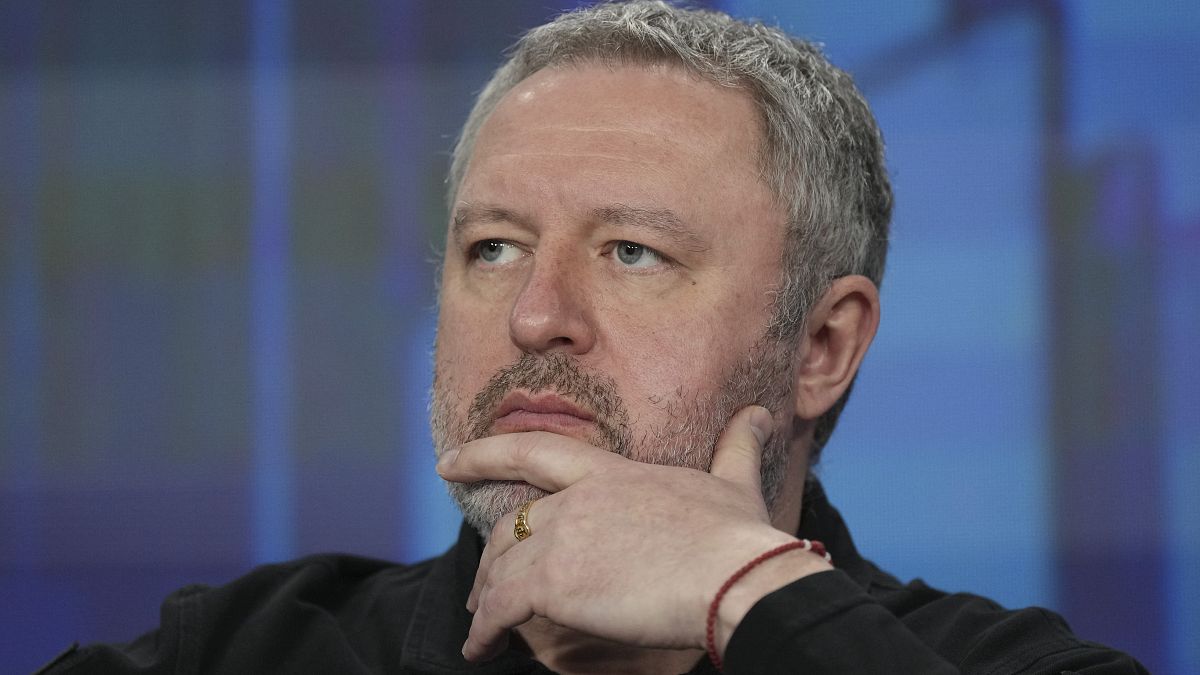Travel
Missing migrant children investigation wins 2024 Daphne Caruana Galizia Prize for Journalism
The months-long investigation was produced by media outlets from Germany, Italy, Greece, the Netherlands, Belgium, Ireland, and the UK.
An investigation into the disappearance of more than 50,000 child migrants has won the European Parliament’s 2024 Daphne Caruana Galizia Prize for Journalism.
Led by Dutch journalist Geesje van Haren, the Lost in Europe project found that since 2021, on average nearly 47 migrant children arriving in Europe have gone missing per day.
Van Haren told Euronews that many of these missing children fall victim to human trafficking, or find themselves caught up in the EU’s crackdown on people smuggling gangs.
“Many children are also caught at the borders, and they end up in prison for people smuggling while they were being smuggled themselves. So the EU war against people smuggling works out the other way for minor children. A lot of minor children are in adult detention because of that,” Van Haren explained.
“We do know that our police system and the system fails to protect these children. And we also know that there is a high pressure on police teams who need to investigate this. But there’s also a big pressure on police who has to investigate drugs, things. And most of the time human trafficking is related to also to drugs staff working,” she added.
Documentation failures
The research also uncovered significant inconsistencies in documentation and reporting across 31 countries, including Austria, Germany, and Italy, raising concerns that the actual number of missing children may be higher.
It’s latest findings build on research conducted during an initial investigation in 2021, which revealed that more than 18,000 migrant children went missing in Europe between 2018 and 2020.
“We spoke with from NGOs and experts from out in the field. They say this is just the tip of the iceberg, that there were 51,433 children missing. The last time that we did this investigation, there were only 18,000 children missing back in 2021,” Geesje van Haren told Euronews.
She adds that the team also experienced difficulty in accessing data from some countries, with France offering no response at all and Spain claiming they don’t differentiate between adults and minors in their data.
However, van Haren hopes the new EU pact on migration and asylum will make data collection more stringent, which could reveal even more missing children in the future.
Lost in Europe began investigating the stories of missing or ‘lost’ migrant children following a comment made by a former Europol chief of staff in 2016, who said at the time more than 10,000 migrant minors had gone missing in Europe.
The Lost in Europe team are planning to launch a fresh investigation in three years time.
Travel
France ramps up Schengen border checks. How will travellers be affected?
France’s current border controls will end on 31 October, but a new set of checks will come into effect from 1 November.
France has announced it will extend internal border controls until April next year.
The current increased checks, introduced due to heightened terrorist threats, were due to end on 31 October.
The controls will be in place along France’s Schengen borders with Belgium, Spain, Luxembourg, Switzerland, Germany and Italy.
Travellers have been warned to expect queues and delays.
In September, Germany introduced similar ramped-up checks which have led to traffic jams at the border.
France steps up border controls amid terrorist concerns
France’s current border controls will end on 31 October, but a new set of checks will come into effect from 1 November.
The heightened security measures will be in place until 20 April 2025.
The extension comes after growing concerns over public safety amid threats of terrorist activity and criminal organisations connected to illegal migration.
Where are France’s increased border checks in place?
The new border controls only affect Schengen zone countries – Belgium, Spain, Luxembourg, Switzerland, Germany and Italy.
If you are entering France from a non-Schengen country, such as the UK, there will be no change to checks as passport and customs controls are already in place.
It will also not affect the requirement for passport stamps for non-EU nationals or the maximum permitted stay of 90 days in Schengen zone countries.
If you fly into France from any Schengen country other than the six that border it, there will be no change in border controls.
How will France’s new Schengen border controls affect travellers?
Normally, travellers passing between Schengen zone countries can move freely without passport checks.
However, countries are permitted to impose temporary increased controls for a set time period if deemed necessary – as occurred during the COVID pandemic for example.
Citing security concerns, France has chosen to ramp up checks along Schengen borders for land, sea and air travel.
This means travellers from Belgium, Spain, Luxembourg, Switzerland, Germany and Italy will have to show a form of ID such as a passport or national ID card.
Non-EU nationals who are resident in France may need to show their carte de séjour too.
Travellers warned of queues at French land border
Travellers most affected will be those crossing into France via land borders. Those arriving by car or bus are advised to allow for extra time.
Germany’s increased security checks have resulted in traffic jams and queues at borders.
Those travelling between France and Germany should be aware they might face checks at both borders.
What other countries have increased checks at Schengen borders?
Austria has increased checks in place with Slovenia and Hungary until 11 November.
Denmark, Norway and Sweden have stepped up border security on all internal borders until 11 November.
In Slovenia, checks are in place at the border with Croatia and Hungary until 21 December.
Travel
Ukrainian prosecutor general Andriy Kostin resigns amid draft-dodging scandal


Andriy Kostin, Prosecutor General of Ukraine attends the forum ‘Ukraine 2024’ in Kyiv, Ukraine. – Copyright Evgeniy Maloletka/Copyright 2024 The AP. All rights reserved
Copyright Evgeniy Maloletka/Copyright 2024 The AP. All rights reserved
By Euronews
Published on
Share this article
Kostin’s resignation followed allegations that nearly 50 prosecutors in the western Khmelnytskyi region of Ukraine had acquired false disability certificates.
Ukraine’s prosecutor general Andriy Kostin has publicly resigned following a corruption scandal in which dozens of prosecutors are alleged to have obtained fake disability certificates to enable them to receive social security benefits and avoid conscription.
A statement published by General Prosecutor’s office said the decision to resign came hours after Zelenskyy held a Security Council meeting to discuss “fake disability certificates of officials of state bodies.”
“I consider the position of the President of Ukraine, Volodymyr Zelensky, to be absolutely correct regarding the need not only to annul all unlawful decisions concerning the granting of disabilities, relevant pension payments, and other benefits, but also to implement clear legislative and organizational changes, as well as personal responsibility. This includes political responsibility,” Kostin wrote in his resignation statement.
The allegations emerged last week when a Ukrainian journalist published a story claiming that nearly 50 prosecutors in the western Khmelnytskyi region of Ukraine had been registered as disabled.
Kostin subsequently conducted an in-house investigation which established that 61 prosecutors of Khmelnytskyi region only had disability certificates.
President Zelenskyy has now asked his cabinet to draft a law to overhaul Ukraine’s disability assessment system with a view to dissolving the current medical commissions by the end of 2024.
“There are hundreds of such instances of clearly unjustified disabilities” among officials, President Zelenskyy said in his nightly address on Tuesday. “All of this needs to be dealt with thoroughly and swiftly.”
On Tuesday, Ukraine’s domestic security service, the SBU, also announced that 64 members of medical commissions were identified as suspects in criminal investigations in 2024, with an additional nine having been tried and convicted.
Go to accessibility shortcuts
Travel
This Swiss ski resort has been named the best in the world, per new ranking
Five ski resorts in Switzerland feature in the top 20 rankings, whilst Austria has 12.
Europe is home to some of the best ski resorts worldwide, from glitzy Alpine retreats to budget-friendly slopes in Serbia.
To help you pick this winter’s destination, travel booking website Omio has released a new ranking of ski resorts around the globe.
The research assessed over 6,000 resorts based on 11 different factors including the cost of an adult, youth and child ticket, customer ratings, if there is access to a ski school, the distance of each course and the number of events at the resort during the season.
The number one spot went to a European ski resort where passes start at around €30 – which is a relief after prices across Europe’s slopes were hiked last season.
This Swiss ski resort has been named the best in the world
Omio found the best ski resort in the world to be Arosa Lenzerheide in Switzerland, located in the Lenzerheide region in the east of the country.
Arosa Lenzerheide scored an impressive 91.73 on the booking website’s custom index scale, beating out Sölden, in Austria, which scored 91.68.
According to Omio’s research, this resort has an impressive 4.7 out of 5-star review average from previous customers. The price of a day pass for an adult is €89, for youth €59 and for children €29.
These prices are slightly on the more expensive side compared to other resorts, but you are paying for state-of-the-art facilities and the opportunity to enjoy the great variety of ski runs or relax in cosy mountain restaurants.
For skiers and snowboarders, there are 225 kilometres of slopes with reliable snow cover and there are also 43 lifts for transportation, so you won’t be waiting in long queues to get on the slopes.
The resort also holds seven events during the ski season including the FIS Ski Cross World Cup Arosa and the Swiss Snow Walk and Run.
Zurich airport is the closest place to fly to reach the ski resort, but you could also consider arriving by train from other European cities.
The top 20 ski resorts in the world are located in Europe
It may come as no surprise that European destinations dominate the rankings due to their geography. The Alps have long been a popular destination for ski-goers but now travellers can easily find the best resorts based on their preferred holiday destination.
Five resorts in Switzerland feature in the top 20 rankings, whilst Austrian resorts take 12 of the spots. Resorts in Italy and France took the other three places.
-

 EU & the World6 days ago
EU & the World6 days agoKamala Harris & Bret Baier Interview Highlights
-

 EU & the World6 days ago
EU & the World6 days agoJay Cutler: 5 Things About Kristin Cavallari’s Ex-Husband Amid His Arrest
-

 Sports5 days ago
Sports5 days agoJuventus, Thiago Motta compliments his team and is already thinking about the Champions League
-

 Sports6 days ago
Sports6 days agoTrack World Championships, Jonathan Milan gold and world record in the pursuit
-

 EU & the World3 days ago
EU & the World3 days agoLiam Payne’s Autopsy Report: Reported Drugs Found Including ‘Pink Cocaine’
-

 Sports4 days ago
Sports4 days agoInter, Simone Inzaghi crosses fingers for Calhanoglu
-

 Africa4 days ago
Africa4 days agoShadows Over Democracy in Mozambique
-

 EU & the World3 days ago
EU & the World3 days agoA$AP Rocky’s Trial: Everything to Know About the Charges & More









